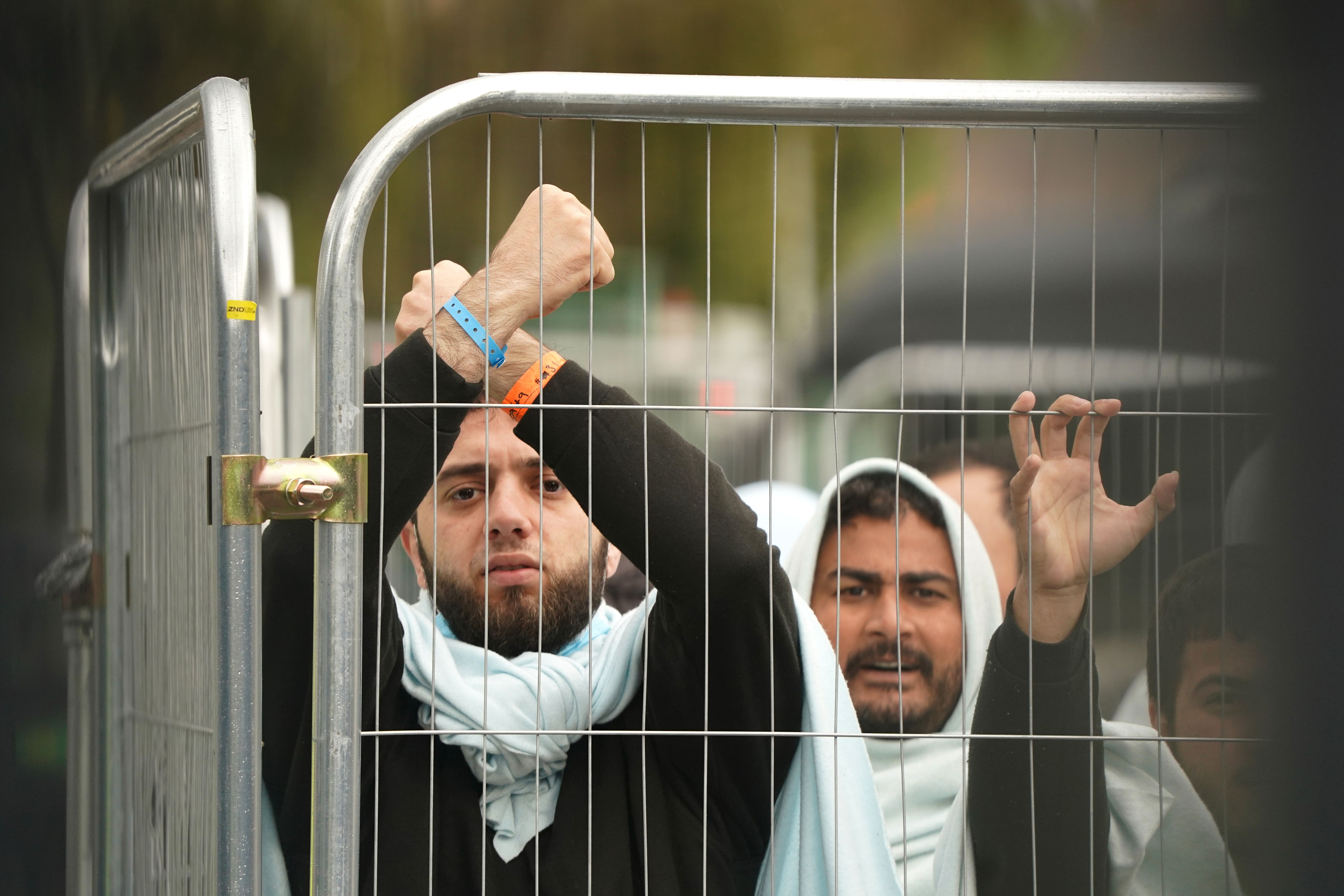UK’s treatment of asylum seekers must comply with international law, UN says
Members of the United Nations Human Rights Council made the recommendation on Thursday.

The UK should make sure its “treatment of asylum seekers complies with international laws”, members of the United Nations Human Rights Council said.
They made the recommendation while highlighting the plan to send migrants to Rwanda as they examined the UK’s human rights record on Thursday.
During the periodic review, a process which takes place every four years, the Netherlands said the Government should “revoke parts of the migration economic development partnership which do not comply with the 1951 Refugee Convention”.
New Zealand called on the UK to ensure its “treatment of asylum seekers is consistent with its humanitarian responsibilities and commitments under international human rights law and international refugee law”.
Justice minister Mike Freer, representing the UK at the session in Geneva, said it was “absolutely committed to protecting human rights at home and abroad”, adding: “That commitment has not changed.”
The UK had a “long, proud tradition” of providing sanctuary for those fleeing persecution, he said, but the immigration and asylum system had been “subject to significant strain” over the last decade and continued to face “enormous” challenges.
It comes as the chief inspector of borders and immigration called on the Government to “give some certainty” to asylum seekers by speeding up approvals instead of housing them in motels – saying that “irrespective of the number of stars it may have”, temporary accommodation is “grim”.
David Neal, a retired Royal Military Police officer, called the current backlog of cases “inexcusably high” and said it was “in the interests of everyone in this country” to get people out of the contingency asylum accommodation.
Writing in The Times, Mr Neal, who was appointed by Priti Patel when she was home secretary, acknowledged the Home Office was showing initiative in tackling the crisis, but decision-making was struggling to “strike a balance between more speed and quality”.
Low morale and unstable management within teams tasked with asylum-seeker case work was further undermining performance, he added.
“The reality of being housed in temporary accommodation, irrespective of the number of stars it may have, is grim,” Mr Neal said.
“The negative impact on mental health as well as the waste of human capital is upsetting.
“As numbers and costs increase by the day, speeding up decisions on asylum claims must be the medium-term objective of any government, providing hope to applicants with legitimate claims, and some level of certainty to the tens of thousands stuck in limbo.”
Mr Neal asked the Government to increase productivity of approving asylum seekers’ claims, adding that decision-makers were currently averaging 1.3 approvals per week.
“It is in the interests of everyone in this country to give some certainty to asylum seekers, reduce the inexcusably high backlog of cases, get people out of contingency asylum accommodation and let them start to rebuild their lives.”
Mr Neal previously told MPs the conditions he encountered at the Manston processing centre in Kent left him “speechless”.
It is in the interests of everyone in this country to give some certainty to asylum seekers... and let them start to rebuild their lives
There were about 4,000 migrants at the facility at the time – more than double its capacity.
As of 8am on Wednesday, the Government said the number of people at the facility was down to 1,147.
Home Secretary Suella Braverman has been under increased pressure to fix the UK’s “broken” asylum system, with the Government currently spending £6.8 million a day putting up migrants in hotels – at an average cost of £150 per person per night.
Home Office figures published in August show that spending on asylum rose to £2.1 billion in 2021-22 – the highest on record.
Prime Minister Rishi Sunak said he and the Home Secretary were working “day and night” to end “the unacceptable rise in Channel crossings” as he continued to face questions over her appointment.
Ms Braverman has faced criticism from some opposition MPs for inflaming the situation after she said the Government is committed to “stopping the invasion on our southern coast”.
Almost 40,000 migrants have arrived in the UK after crossing the Channel so far this year. But there are yet to be any crossings in November amid bad weather, leaving the provisional total for 2022 to date at 39,913.
Bookmark popover
Removed from bookmarks